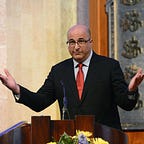Places and Global Competition Post Coronavirus Crisis
What will happen to global competition between places post-COVID-19? The simple answer is that it is too early to fully assess its impact. There are too many variables at play.
So far, we can only predict that global competition between nations and cities will re-emerge, but in a different form. Some, environmental activists for example, hope that it will lose some of its intensity and the excess that comes with it. They hope that past levels of consumption will be met with moderation and responsible behavior. They also hope for a major boost to the climate change conversation. The universe is trying to tell us something, they say. But others still yearn for a quick restoration of the ‘good old world-order’ and the resumption of fast-paced economic intensity. In their view, pre-COVID-19, the system was experiencing an unprecedented level of prosperity. It was a win-win situation, they say. Some even hope that the aftermath of COVID-19 will reverse some of, what they believe to be, globalization’s shortcomings. They see in the COVID-19 crisis an opportunity to reaffirm nationalism and in some cases even isolationism.
Indeed, it seems as if the global machine has stopped. Highways are empty, once bustling airports are deserted and office buildings are vacant like never before.
But global competition hasn’t really disappeared.
Even now, when human solidarity is of the essence, nations and cities fiercely compete over medical supplies, human resources and consumer attention. Only a few days ago, New York Governor, Andrew Cuomo, described the internal competition between states over medical supplies as a major systemic problem. Competition is an integral part of human nature. In the context of evolution and survivability, competition is tightly linked to the natural selection theory.
Places are no different from humans. Every place has a competitive personality and every place wants to succeed. In some cases, the place’s persona evolved organically, while in other locales it was engineered. To enhance their positioning in the post COVID-19 competition, places will have to emphasize their relevant value, assets and advantages.
In other words, they will have to behave like brands. What does that mean? They will have to live up to their promises like never before.
Yes, places will still have to continue to effectively communicate their relative advantages. But post-Coronavirus, they will also have to demonstrate a very high level of disaster preparedness, long-term planning to enhance resilience, sufficient infrastructure and superior executional capabilities.
The current crisis has not only exposed systemic failures but also highlighted the fact that health is the foundation of economy.
It would be safe to assume that post COVID-19 terms such as ‘resilience’, ‘responsible consumption’ and ‘disaster preparedness’ will become even more prominent in meaningful conversations about the future economy.
For places to generate a highly compelling persona that stands out, they will have to celebrate the values that are of interest to the world. They will have to internalize the fact that this crisis is only a ‘dress rehearsal’. Sadly, this will not be the last plague in history, nor will it be the last natural disaster.
More than ever, places will have to rely on actual quality and not just manage perception using public relations tools and advertising. Places that have failed to adequately respond to the Coronavirus crisis, will have to work much harder to win consumer trust again.
A place can never stop working to improve its global positioning. The efforts to improve the positioning of cities and nations can never be viewed only as a campaign, but rather as a never-ending process.
*The writer is a Global Distinguished Professor for International Relations at New York University, a member of the advisory council of APCO Worldwide and Chairman of the Charney Forum for New Diplomacy. He was Israel’s longest serving consul-general in New York (2010–2016).
